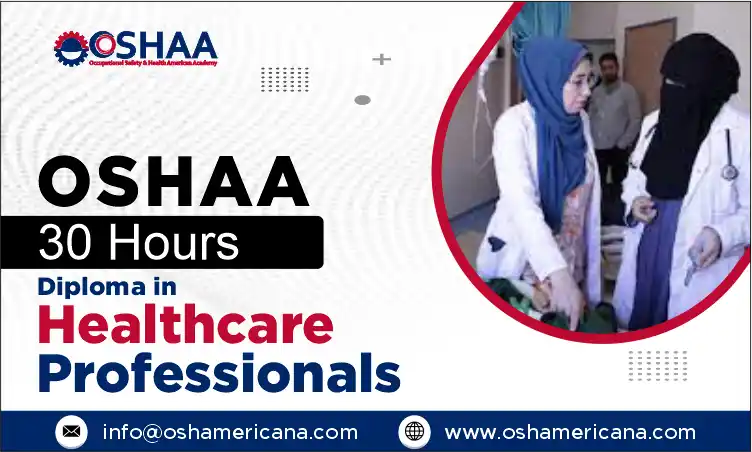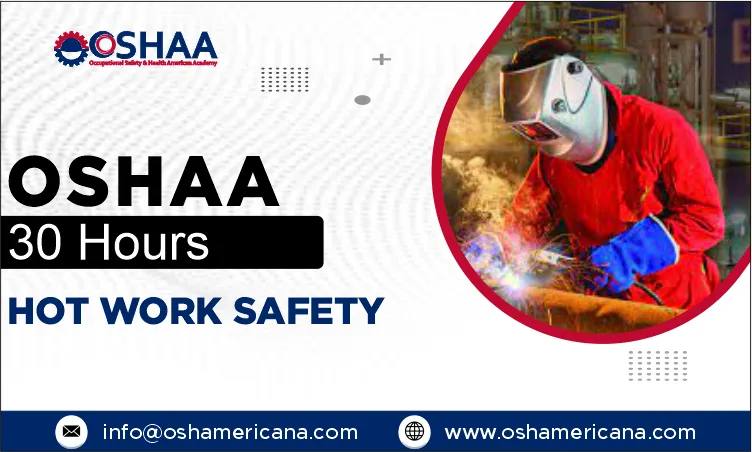In healthcare, the safety and well-being of patients are paramount. With the increasing demand for high-quality care and the complex nature of modern healthcare environments, it’s essential that healthcare professionals are equipped with the knowledge and skills to maintain patient safety and uphold their duty of care. The OSHAA 30-Hours Advanced Diploma in Patient Safety and Duty of Care is designed to provide healthcare professionals with a comprehensive understanding of patient safety, legal responsibilities, and ethical practices, enabling them to deliver the highest standard of care.
Patient safety is a critical aspect of healthcare delivery that involves preventing harm to patients and ensuring that every step of care is done with their best interests in mind. The duty of care refers to the legal and ethical obligation to provide the highest level of care, preventing negligence and ensuring that patients’ rights are respected throughout their treatment.
The OSHAA 30-Hours Advanced Diploma in Patient Safety and Duty of Care is a comprehensive, flexible, and accessible course designed for healthcare professionals seeking to improve patient care standards and their own professional development. This course equips you with the skills necessary to navigate the complexities of modern healthcare, where patient safety is at the forefront of quality care.
Patient safety and the duty of care are essential elements in providing the highest standard of healthcare. By enrolling in the OSHAA 30-Hours Advanced Diploma in Patient Safety and Duty of Care, you’ll be taking a vital step towards improving your skills, safeguarding patients, and contributing to a culture of safety and quality in healthcare settings. Whether you’re looking to advance in your current role or expand your knowledge in the field, this course will equip you with the expertise needed to excel.
OSHAA 30-Hours Advanced Diploma in Patient Safety and Duty of Care
Study Units
Learning Outcomes
Introduction to Patient Safety and Duty of Care (2 hours)
- Understand the core principles of patient safety and the duty of care in healthcare settings
- Recognise the importance of maintaining high standards of care to prevent harm to patients
- Identify the key roles and responsibilities of healthcare professionals in ensuring patient safety
- Gain insight into the legal and ethical implications of patient care
Legal and Ethical Responsibilities in Healthcare (4 hours)
- Understand the legal framework surrounding patient care and professional responsibilities
- Identify ethical principles guiding healthcare practice and decision-making
- Explore the concept of negligence and its impact on healthcare professionals and organisations
- Learn about patient rights and how to uphold these rights in practice
Risk Assessment and Management in Patient Safety (4 hours)
- Learn how to conduct a thorough risk assessment in healthcare settings
- Understand different types of risks and how to evaluate their impact on patient safety
- Develop strategies to mitigate risks and enhance patient safety through effective risk management
- Apply risk management techniques to reduce the likelihood of adverse events in healthcare
Preventing and Responding to Medical Errors (4 hours)
- Identify common causes of medical errors in healthcare environments
- Learn strategies to prevent medical errors and improve overall care quality
- Understand the importance of reporting and learning from errors to enhance patient safety
- Develop skills to respond effectively to medical errors, ensuring patient safety is maintained
Communication Skills for Patient Safety (5 hours)
- Recognise the role of clear and effective communication in promoting patient safety
- Develop skills to communicate effectively with patients, families, and healthcare teams
- Understand how poor communication can lead to medical errors and patient harm
- Learn techniques to improve patient-provider communication and ensure safety throughout the care process
Safeguarding Vulnerable Patients (4 hours)
- Understand the concept of safeguarding and its importance in protecting vulnerable patients
- Learn how to identify signs of abuse, neglect, and exploitation in healthcare settings
- Develop skills to respond appropriately to safeguard vulnerable individuals
- Gain insight into the legal and procedural aspects of safeguarding in healthcare
Managing and Mitigating Risks in Healthcare Settings (4 hours)
- Learn how to identify, assess, and manage various risks in healthcare environments
- Understand the importance of safety protocols and procedures in risk mitigation
- Develop skills to implement risk reduction strategies to enhance patient safety
- Explore methods to foster a risk-aware culture within healthcare teams
Creating a Culture of Safety in Healthcare Organizations (3 hours)
- Understand the importance of fostering a culture of safety within healthcare organisations
- Learn how leadership and organisational practices can contribute to patient safety
- Develop strategies to engage staff in promoting safety and quality care
- Explore the role of teamwork, accountability, and continuous improvement in creating a safe healthcare environment
- Enhanced Knowledge of Patient Safety: Gain a deep understanding of the principles and practices that ensure patient safety and the duty of care in healthcare settings, leading to improved care delivery.
- Legal and Ethical Competence: Develop a solid understanding of the legal and ethical responsibilities healthcare professionals have towards their patients, helping you avoid legal pitfalls and deliver care with integrity.
- Improved Risk Management Skills: Learn how to assess, manage, and mitigate risks, ensuring that patient safety is prioritised and adverse events are reduced.
- Practical Skills in Preventing Medical Errors: Acquire essential skills to prevent medical errors and effectively respond to incidents when they occur, ensuring patient safety is maintained at all times.
- Advanced Communication Techniques: Enhance your communication skills to ensure that you are able to effectively collaborate with patients, families, and healthcare teams, reducing the risk of misunderstandings and errors.
- Safeguarding Vulnerable Patients: Learn how to identify and protect vulnerable patients from abuse, neglect, and exploitation, ensuring a safe and supportive care environment for all.
- Increased Professional Credibility: The advanced diploma enhances your professional standing and demonstrates your commitment to upholding patient safety standards and ethical practices.
- Creation of a Safety-First Culture: Gain the skills to foster a culture of safety within your healthcare organisation, promoting continuous improvement and a proactive approach to patient care.
- Career Advancement Opportunities: Completing this course opens doors to career advancement in healthcare management, patient safety, and risk management, enhancing your employability and professional development.
- Enhanced Patient Outcomes: By applying the knowledge and skills gained from the course, you will contribute to better patient outcomes, lower error rates, and a higher standard of care in your healthcare setting.
This course is an invaluable resource for healthcare professionals looking to improve patient safety, manage risks effectively, and uphold their duty of care, ensuring a safer and more efficient healthcare environment.
The OSHAA 30-Hours Advanced Diploma in Patient Safety and Duty of Care is designed for healthcare professionals who want to enhance their understanding of patient safety, legal responsibilities, and risk management. It is ideal for individuals who are committed to improving the quality of care they provide while ensuring the safety and well-being of their patients.
This course is perfect for:
- Healthcare Managers and Supervisors responsible for implementing and overseeing safety protocols within healthcare organisations
- Nurses, Doctors, and Allied Health Professionals looking to improve their skills in patient safety and risk management
- Clinical Risk Managers and those involved in healthcare quality assurance who want to ensure compliance with safety standards and reduce incidents
- Patient Safety Officers and those responsible for developing and maintaining patient safety initiatives in their organisations
- Social Workers and Care Providers working in healthcare environments who are keen to protect vulnerable patients and uphold their duty of care
- Healthcare Administrators looking to gain a comprehensive understanding of the legal, ethical, and practical aspects of patient safety
- Medical Assistants and other support staff who wish to increase their awareness and role in maintaining a safe and ethical care environment
- Healthcare Consultants who need to advise organisations on best practices for patient safety and duty of care
- Individuals Pursuing Career Advancement within healthcare roles focused on patient safety, compliance, or healthcare quality management
If you are committed to delivering the best possible care, improving patient safety, and adhering to high standards of duty of care, this course is an essential step in your professional development.







